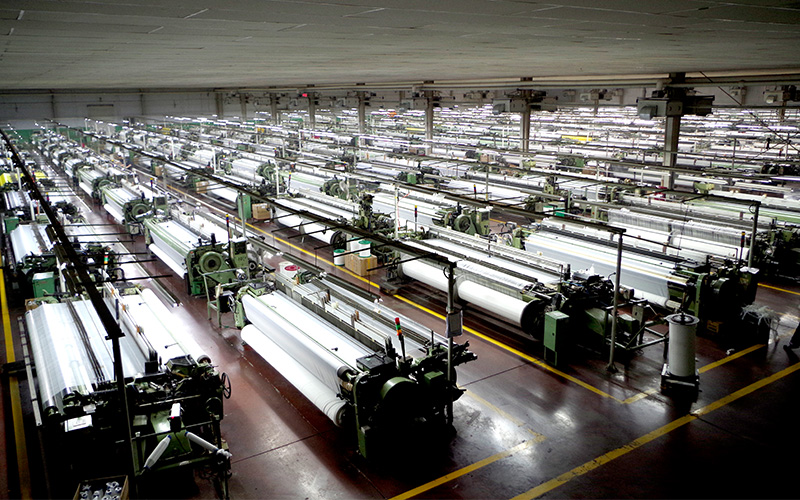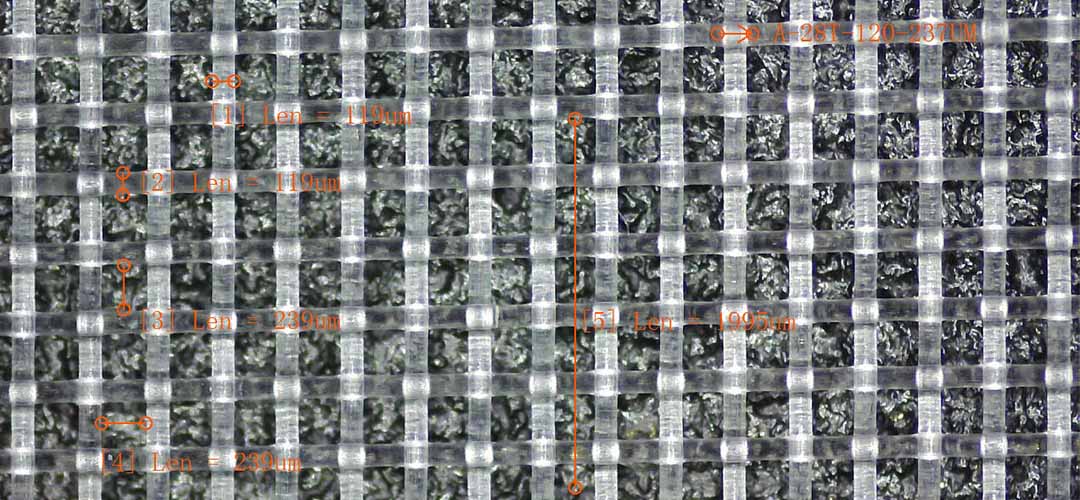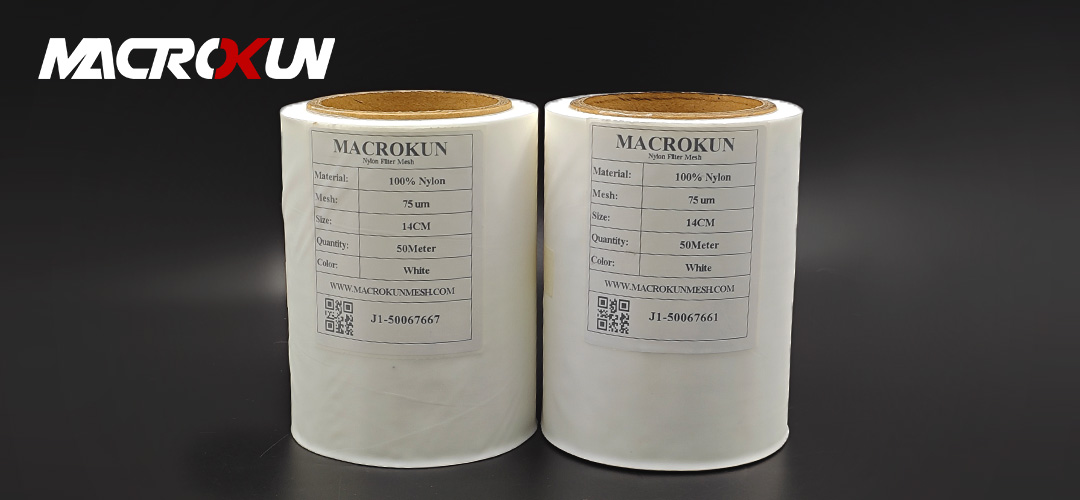When it comes to filtration, selecting the right micron nylon mesh tubing is crucial for achieving optimal results. Micron nylon mesh tubing offers a number of benefits that make it an ideal choice for a wide range of filtration applications. In this article, we will explore the benefits of micron nylon mesh tubing and provide some tips on how to select the right tubing for your specific filtration needs.
One of the key benefits of micron nylon mesh tubing is its ability to effectively filter out particles of various sizes. The micron rating of the tubing refers to the size of the particles that the tubing can filter out. The lower the micron rating, the smaller the particles that can be filtered out. This makes micron nylon mesh tubing ideal for applications where fine filtration is required, such as in the pharmaceutical, food and beverage, and electronics industries.
Another benefit of micron nylon mesh tubing is its durability and resistance to chemicals and abrasion. Nylon is a strong and flexible material that can withstand harsh conditions without losing its effectiveness. This makes micron nylon mesh tubing a reliable choice for filtration applications where the tubing may be exposed to chemicals, high temperatures, or abrasive materials.
In addition to its durability, micron nylon mesh tubing is also easy to clean and maintain. The smooth surface of the tubing allows for easy cleaning and prevents particles from becoming trapped in the mesh. This not only helps to prolong the life of the tubing but also ensures that it continues to provide efficient filtration over time.
When selecting micron nylon mesh tubing for your filtration needs, there are a few key factors to consider. First, you will need to determine the micron rating that is appropriate for your application. This will depend on the size of the particles that need to be filtered out and the level of filtration efficiency required.
Next, you will need to consider the size and shape of the tubing. Micron nylon mesh tubing is available in a variety of sizes and configurations, so it is important to choose tubing that is compatible with your filtration system. You will also need to consider the length of the tubing, as well as any additional features such as end caps or connectors.
It is also important to consider the material of the tubing. While nylon is a popular choice for filtration applications, there are other materials available that may be better suited to certain applications. Be sure to research the different types of tubing available and choose the one that best meets your specific filtration needs.
In conclusion, micron nylon mesh tubing offers a number of benefits for filtration applications, including effective particle filtration, durability, resistance to chemicals and abrasion, and easy maintenance. By selecting the right micron nylon mesh tubing for your specific filtration needs, you can ensure that your filtration system operates efficiently and effectively.
When it comes to selecting the right micron nylon mesh tubing for your filtration needs, there are several factors that need to be considered. The choice of tubing can greatly impact the efficiency and effectiveness of your filtration system, so it is important to make an informed decision.
One of the first factors to consider is the micron rating of the nylon mesh tubing. The micron rating refers to the size of the openings in the mesh, which determines the size of particles that can pass through. It is important to choose a micron rating that is appropriate for the specific application. If the micron rating is too large, smaller particles may not be effectively filtered out. On the other hand, if the micron rating is too small, the flow rate may be significantly reduced, leading to decreased efficiency.
Another important factor to consider is the material of the nylon mesh tubing. Nylon is a popular choice for filtration applications due to its durability and resistance to chemicals and abrasion. However, there are different types of nylon available, each with its own unique properties. For example, nylon 6/6 is known for its high strength and temperature resistance, while nylon 6 is more flexible and has better impact resistance. It is important to choose a nylon material that is suitable for the specific filtration needs and operating conditions.
The construction of the nylon mesh tubing is also an important consideration. The tubing can be woven or knitted, with each construction method offering its own advantages. Woven nylon mesh tubing is typically more rigid and has a higher burst strength, making it suitable for applications that require high pressure or heavy-duty filtration. Knitted nylon mesh tubing, on the other hand, is more flexible and has a higher flow rate, making it ideal for applications that require a higher throughput.

In addition to the construction method, the number of plies in the nylon mesh tubing should also be considered. The number of plies refers to the number of layers of mesh that are stacked together. A higher number of plies generally results in a stronger and more durable tubing, but it may also reduce the flow rate. It is important to strike a balance between strength and flow rate to ensure optimal filtration performance.
Lastly, the size and shape of the nylon mesh tubing should be taken into account. The size of the tubing should be compatible with the filtration system and the desired flow rate. The shape of the tubing, whether it is round, square, or rectangular, can also impact the flow characteristics. It is important to choose a size and shape that is suitable for the specific application.
In conclusion, selecting the right micron nylon mesh tubing for your filtration needs requires careful consideration of several factors. The micron rating, material, construction, number of plies, and size and shape of the tubing all play a role in determining the efficiency and effectiveness of the filtration system. By taking these factors into account, you can make an informed decision and ensure optimal filtration performance.
Micron nylon mesh tubing is a versatile and widely used material in various industries. Its ability to filter out particles of different sizes makes it an ideal choice for many filtration applications. In this article, we will explore some common applications for micron nylon mesh tubing and provide guidance on how to select the right tubing for your specific filtration needs.
| Type | Mesh Size (/cm) |
Mesh Size (/inch) |
Thread Dia (um) |
Mesh Opening (um) |
Thickness (um) |
Net Weight (g/m2) |
| NL4/1950 | 4 | 10 | 550 | 1950 | 1100 | 307 |
| NL5/1500 | 5 | 13 | 500 | 1500 | 1000 | 318 |
| NL6/1267 | 6 | 15 | 400 | 1267 | 800 | 244 |
| NL7/1079 | 7 | 18 | 350 | 1079 | 700 | 218 |
| NL8/900 | 8 | 20 | 350 | 900 | 700 | 249 |
| NL9/861 | 9 | 23 | 250 | 861 | 500 | 143 |
| NL9/811 | 9 | 23 | 300 | 811 | 600 | 206 |
| NL10/750 | 10 | 25 | 250 | 750 | 500 | 159 |
| NL10/700 | 10 | 25 | 300 | 700 | 600 | 229 |
| NL12/583 | 12 | 30 | 250 | 583 | 500 | 191 |
| NL12/533 | 12 | 30 | 300 | 533 | 600 | 274 |
| NL14/514 | 14 | 36 | 200 | 514 | 340 | 142 |
| NL16/425 | 16 | 40 | 200 | 425 | 340 | 160 |
| NL20/350 | 20 | 50 | 150 | 350 | 255 | 113 |
| NL20/300 | 20 | 50 | 200 | 300 | 340 | 200 |
| NL24/267 | 24 | 60 | 150 | 267 | 255 | 135 |
| NL28/237 | 28 | 70 | 120 | 237 | 204 | 101 |
| NL30/213 | 30 | 76 | 120 | 213 | 204 | 110 |
| NL32/213 | 32 | 80 | 100 | 213 | 170 | 80 |
| NL36/178 | 36 | 90 | 100 | 178 | 170 | 90 |
| NL40/150 | 40 | 100 | 100 | 150 | 170 | 100 |
| NL43/153 | 43 | 110 | 80 | 153 | 136 | 70 |
| NL48/128 | 48 | 120 | 80 | 128 | 136 | 77 |
| NL56/119 | 56 | 140 | 60 | 119 | 102 | 50 |
| NL64/96 | 64 | 160 | 60 | 96 | 102 | 58 |
| NL72/89 | 72 | 180 | 50 | 89 | 85 | 45 |
| NL80/75 | 80 | 200 | 50 | 75 | 85 | 50 |
| NL100/57 | 100 | 250 | 43 | 57 | 73 | 46 |
| NL110/48 | 110 | 280 | 43 | 48 | 73 | 52 |
| NL120/48 | 120 | 300 | 35 | 48 | 60 | 37 |
| NL120/40 | 120 | 300 | 43 | 40 | 73 | 55 |
| NL130/42 | 130 | 330 | 35 | 42 | 60 | 40 |
| NL130/34 | 130 | 330 | 43 | 34 | 73 | 61 |
| NL140/36 | 140 | 350 | 35 | 36 | 60 | 43 |
| NL157/25 | 157 | 400 | 43 | 25 | 73 | 74 |
| NL180/20 | 180 | 450 | 39 | 20 | 66 | 68 |
| NL200/15 | 200 | 500 | 39 | 15 | 66 | 76 |
| NL220/10 | 220 | 550 | 39 | 10 | 66 | 84 |
| NL240/5 | 240 | 600 | 39 | 5 | 66 | 91 |
One of the most common applications for micron nylon mesh tubing is in the pharmaceutical industry. In pharmaceutical manufacturing, it is crucial to ensure that the final product is free from any contaminants. Micron nylon mesh tubing is used to filter out particles and impurities during the production process, ensuring that the end product meets the highest quality standards.
Another industry that extensively uses micron nylon mesh tubing is the food and beverage industry. In food processing, it is essential to maintain the purity and quality of the products. Micron nylon mesh tubing is used to filter out solid particles, such as seeds or debris, from liquids or sauces. This ensures that the final product is free from any unwanted particles, providing a safe and enjoyable experience for consumers.
The automotive industry also relies on micron nylon mesh tubing for various applications. One common use is in fuel filtration systems. Micron nylon mesh tubing is used to filter out contaminants and impurities from fuel, ensuring that the engine operates efficiently and smoothly. Additionally, micron nylon mesh tubing is used in air filtration systems to remove dust and other particles from the air intake, protecting the engine from damage.
In the electronics industry, micron nylon mesh tubing is used in the production of printed circuit boards (PCBs). During the PCB manufacturing process, it is crucial to prevent any dust or debris from contaminating the boards. Micron nylon mesh tubing is used as a protective cover during the soldering process, preventing any unwanted particles from settling on the boards and compromising their functionality.

When selecting the right micron nylon mesh tubing for your filtration needs, there are several factors to consider. The first is the desired filtration level. Micron nylon mesh tubing is available in various mesh sizes, ranging from coarse to fine. The mesh size determines the size of particles that can pass through the tubing. Therefore, it is essential to choose a mesh size that is appropriate for the particles you want to filter out.
Another factor to consider is the material of the tubing. While nylon is a common choice due to its durability and chemical resistance, there are other materials available, such as polyester or polypropylene. The choice of material depends on the specific requirements of your application, such as temperature resistance or compatibility with certain chemicals.
Additionally, consider the flow rate and pressure requirements of your filtration system. Different micron nylon mesh tubing options have different flow rates and pressure ratings. It is crucial to select tubing that can handle the flow rate and pressure of your system without causing any restrictions or leaks.
In conclusion, micron nylon mesh tubing is a versatile material with numerous applications in various industries. Whether it is in pharmaceutical manufacturing, food processing, automotive, or electronics, micron nylon mesh tubing plays a crucial role in ensuring the purity and quality of products. When selecting the right tubing for your filtration needs, consider factors such as the desired filtration level, material, flow rate, and pressure requirements. By choosing the appropriate micron nylon mesh tubing, you can achieve optimal filtration results and maintain the integrity of your products.
When it comes to selecting the right micron nylon mesh tubing for your filtration needs, there are several factors to consider. Micron nylon mesh tubing is commonly used in a variety of industries, including pharmaceutical, food and beverage, and water treatment. It is important to choose the right micron size to ensure that your filtration system operates efficiently and effectively.
One of the first things to consider when selecting micron nylon mesh tubing is the size of the particles you need to filter out. The micron size refers to the size of the openings in the mesh, with smaller micron sizes indicating finer filtration. If you are filtering out larger particles, you will need a larger micron size, while smaller particles will require a smaller micron size.
Another important factor to consider is the flow rate of your filtration system. The micron size of the mesh tubing will impact the flow rate, with smaller micron sizes resulting in slower flow rates. It is important to strike a balance between filtration efficiency and flow rate to ensure that your system operates optimally.
In addition to micron size, it is also important to consider the material of the mesh tubing. Nylon is a popular choice for filtration applications due to its durability and chemical resistance. Nylon mesh tubing is also easy to clean and maintain, making it a cost-effective option for many industries.
Proper maintenance and care of your micron nylon mesh tubing is essential to ensure its longevity and effectiveness. Regular cleaning is important to prevent clogs and maintain optimal filtration performance. Depending on the type of particles being filtered, the mesh tubing may need to be cleaned more frequently to prevent buildup.

When cleaning micron nylon mesh tubing, it is important to use the proper cleaning agents and techniques to avoid damaging the material. Mild detergents and warm water are typically sufficient for cleaning nylon mesh tubing, but more stubborn buildup may require the use of specialized cleaning solutions.
After cleaning, it is important to thoroughly rinse the mesh tubing to remove any residue from the cleaning agents. Proper drying is also essential to prevent mold and mildew growth. Air drying is recommended, as excessive heat can damage the nylon material.
In addition to regular cleaning, it is important to inspect your micron nylon mesh tubing for any signs of wear or damage. Tears or holes in the mesh can compromise filtration efficiency and should be repaired or replaced as soon as possible. Regular inspections can help identify potential issues before they become major problems.
By selecting the right micron size and material for your filtration needs, and properly maintaining and caring for your micron nylon mesh tubing, you can ensure that your filtration system operates efficiently and effectively. Proper maintenance and care are essential to prolonging the life of your mesh tubing and maximizing its performance.
Pre: Why Micron Nylon Mesh Screens Offer Superior Strength and Precision
Next: Why Micron Nylon Mesh Fabric Is Preferred for High-Efficiency Filtration

MACROKUN has established long-term and stable cooperative relations with many transportation companies such as China Post, DHL, FEDEX, USPS, UPS, etc. Of course, MACROKUN can also provide air and sea transportation. The powerful logistics system enables all MACROKUN'S Printing Mesh, Filter Mesh and Filter Bags and so on to be easily and efficiently transported to any place. For quotes and inquiries, please email our sales team.





